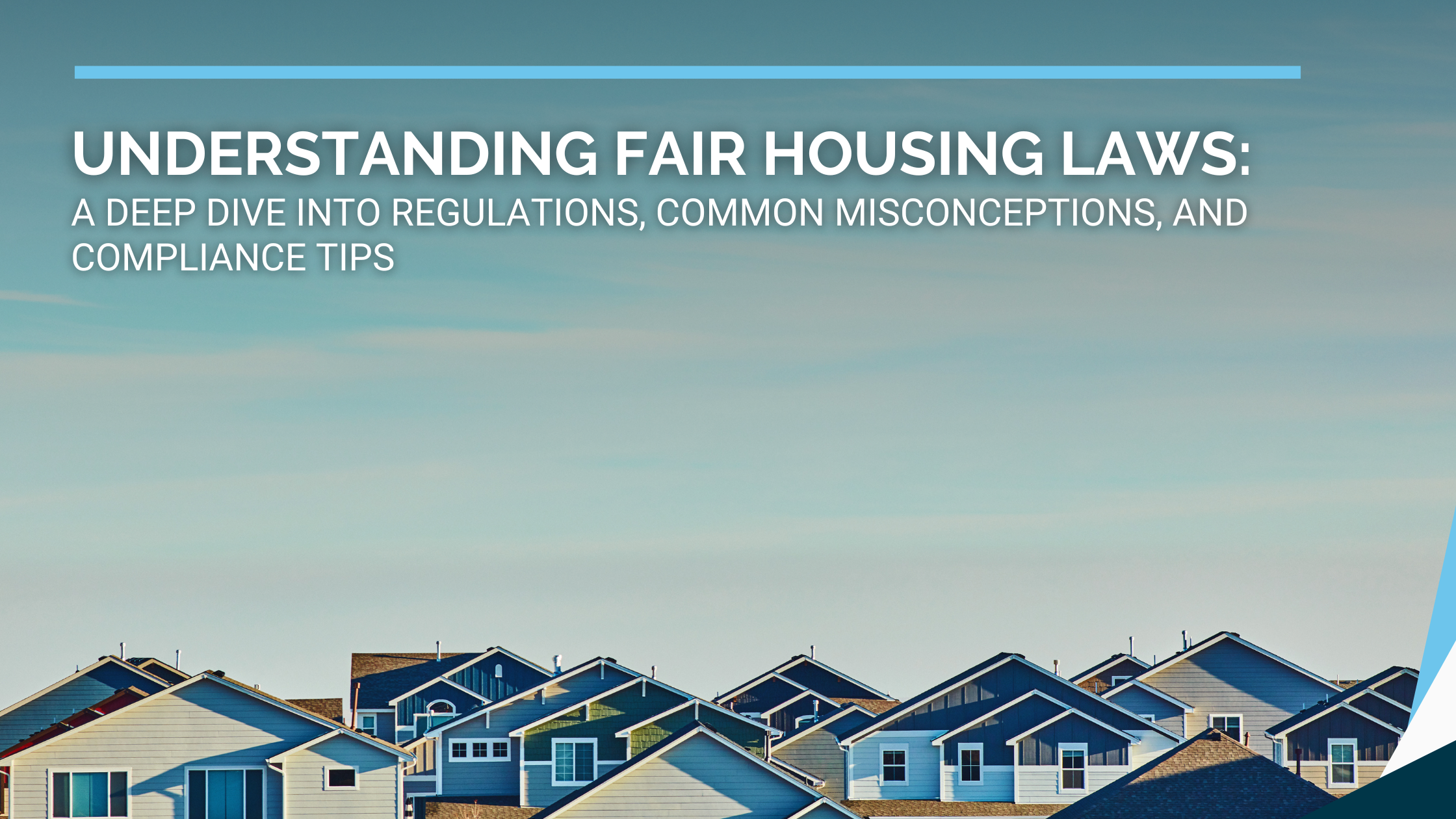Navigating the complex landscape of fair housing laws is essential for property managers and landlords. These laws are designed to ensure that everyone has equal access to housing opportunities, free from discrimination. At Rosenbaum Realty Group, we prioritize compliance with fair housing regulations to foster inclusive and equitable communities. Let's take a deep dive into fair housing laws, address common misconceptions, and provide tips on how property managers can ensure compliance.
What Are Fair Housing Laws?
Fair housing laws are regulations that prohibit discrimination in housing based on certain protected characteristics. The primary federal law is the Fair Housing Act of 1968, which makes it illegal to discriminate against individuals based on race, color, national origin, religion, sex, familial status, or disability. Additionally, the Fair Housing Amendments Act of 1988 strengthened protections for people with disabilities and families with children.
Many states and local jurisdictions have their own fair housing laws that may include additional protected classes, such as sexual orientation, gender identity, marital status, and source of income. It is crucial for property managers to be aware of both federal and local regulations to ensure full compliance.
Common Misconceptions About Fair Housing Laws
Misconception: Fair Housing Laws Only Apply to Large Properties
Reality: Fair housing laws apply to most housing providers, including small landlords who own a few rental units. There are some exemptions, but they are limited and vary by jurisdiction.
Misconception: Advertising Is Not Subject to Fair Housing Laws
Reality: Advertising for rental properties must comply with fair housing laws. This means avoiding discriminatory language that suggests a preference for or against certain protected classes.
Misconception: Reasonable Accommodations Are Optional
Reality: Landlords are required to provide reasonable accommodations for tenants with disabilities. This includes making modifications to the property and altering policies to allow equal access to housing.
Misconception: It's Acceptable to Refuse Tenants Based on Criminal History
Reality: Blanket policies that deny housing based on criminal history can be discriminatory. Property managers must consider the nature, severity, and timing of the offense, and whether it poses a risk to the property or other tenants.
How Property Managers Can Ensure Compliance
Educate Yourself and Your Team
Staying informed about fair housing laws is the first step to compliance. Regularly review federal, state, and local regulations and provide ongoing training for your property management team.
Implement Fair Screening Practices
Develop a standardized screening process that applies equally to all applicants. Avoid questions or criteria that could be viewed as discriminatory. Ensure that all screening practices are transparent and based on legitimate business needs.
Maintain Clear and Inclusive Advertising
Craft rental advertisements that are inclusive and welcoming to all potential tenants. Avoid language that suggests a preference for certain demographics. For example, instead of saying "ideal for young professionals," use "ideal for anyone seeking a comfortable and convenient living space."
Provide Reasonable Accommodations
Be prepared to make reasonable accommodations for tenants with disabilities. This might include allowing service animals, installing grab bars in bathrooms, or providing accessible parking spaces. Engage in an interactive process with tenants to determine their needs and how best to meet them.
Keep Detailed Records
Document all interactions with prospective and current tenants. This includes applications, screening decisions, maintenance requests, and accommodation requests. Keeping thorough records can help demonstrate compliance if any disputes arise.
Seek Legal Advice When Necessary
Fair housing laws can be complex, and it's essential to seek legal advice if you're unsure about any aspect of compliance. An attorney specializing in housing law can provide guidance tailored to your specific situation.
Promote a Culture of Inclusion
Foster an inclusive environment within your property management team and your rental community. Encourage open communication, respect for diversity, and a commitment to fair treatment for all tenants.
Understanding and complying with fair housing laws is not just a legal obligation but also a crucial component of ethical property management. By staying informed, implementing fair practices, and fostering an inclusive community, property managers can ensure they provide equal housing opportunities for all. At Rosenbaum Realty Group, we are dedicated to upholding these principles and creating welcoming environments for all our tenants. If you have any questions or need assistance with fair housing compliance, our team is here to help.


